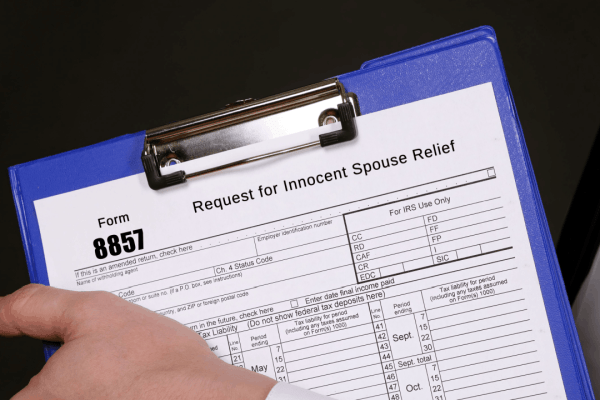
What is the minimum payment the IRS will accept?
Terms Explained: What is the minimum payment the IRS will accept?
What is the minimum payment the IRS will accept depends on your total tax debt and financial situation. The IRS typically requires a minimum monthly payment of $25 for short-term payment plans and $50 for long-term installment agreements. However, these amounts can vary based on your ability to pay and the total amount owed.
When you owe taxes to the IRS, understanding payment options becomes crucial for avoiding penalties and interest charges. The IRS offers several payment plans designed to help taxpayers manage their tax obligations without causing financial hardship. This guide explains exactly what minimum payments the IRS accepts and how to qualify for affordable payment arrangements.
Payment Plan: What is the minimum payment the IRS will accept for installments?
The IRS offers two main types of payment arrangements, each with different minimum payment requirements. For short-term payment plans (120 days or less), what is the minimum payment the IRS will accept is generally any amount that pays off your full balance within the agreed timeframe. These plans don’t require a setup fee and allow you to avoid the long-term installment agreement process.
Long-term installment agreements have more structured requirements. The IRS typically sets minimum monthly payments at $50 for most taxpayers, though this can be lower in cases of financial hardship. Your minimum payment amount depends on your total tax debt, monthly income, necessary living expenses, and assets. The IRS uses Form 433-F (Collection Information Statement) to evaluate your financial situation and determine what is the minimum payment the IRS will accept in your specific case.
For taxpayers owing $50,000 or less in combined tax, penalties, and interest, the process is streamlined. You can often set up a payment plan online without providing detailed financial information, making it easier to determine what is the minimum payment the IRS will accept for your situation.
Financial Hardship: What is the minimum payment the IRS will accept during tough times?
During periods of financial hardship, what is the minimum payment the IRS will accept can be significantly reduced. The IRS may accept payments as low as $10 to $25 per month if you can demonstrate genuine financial distress. This requires submitting Form 433-F along with documentation of your income, expenses, and financial obligations.
The IRS considers necessary living expenses when evaluating hardship cases. These include housing costs, utilities, food, transportation, medical expenses, and minimum payments on secured debts. If your necessary expenses equal or exceed your income, the IRS may temporarily delay collection or accept very low payment amounts. For detailed guidance on allowable expenses, refer to the IRS Collection Financial Standards.
Currently Not Collectible (CNC) status represents another option when determining what is the minimum payment the IRS will accept. If you cannot afford any payment due to financial hardship, the IRS may place your account in CNC status, temporarily halting collection activities while interest and penalties continue to accrue.
Setup Process: What is the minimum payment the IRS will accept to establish agreements?
To establish a payment plan and determine what is the minimum payment the IRS will accept, you have several options. Online applications through the IRS Online Payment Agreement portal are the fastest method for taxpayers owing $50,000 or less. The system automatically calculates minimum payment amounts based on your balance and selected repayment term.
Phone applications require calling the IRS at 1-800-829-1040. Representatives can explain what is the minimum payment the IRS will accept and help establish payment terms that work for your budget. This option provides more personalized service and flexibility in payment arrangements.
Written applications using Form 9465 (Installment Agreement Request) allow for detailed financial documentation. This method is particularly useful when requesting lower payments due to financial hardship or when you need to demonstrate what is the minimum payment the IRS will accept based on your specific circumstances. You can download Form 9465 directly from the IRS Forms and Publications page.
Required Documentation
- Complete tax returns for the years owed
- Form 433-F for financial hardship cases
- Bank statements and income verification
- Documentation of necessary living expenses
Processing Timeframes
- Online applications: Immediate approval for qualified taxpayers
- Phone applications: Same-day processing in most cases
- Written applications: 30-60 days for processing
Smart Strategies: What is the minimum payment the IRS will accept?
Understanding what is the minimum payment the IRS will accept helps you choose the most beneficial payment strategy. While minimum payments reduce immediate financial strain, they also extend repayment periods and increase total interest costs. The IRS charges interest on unpaid balances, currently around 8% annually, plus failure-to-pay penalties of 0.5% per month.
Consider paying more than the minimum when possible to reduce long-term costs. Even small additional payments can significantly decrease total interest charges. For example, if you owe $10,000 and pay the minimum $50 monthly, you’ll pay approximately $3,000 in interest over the repayment period. Increasing payments to $75 monthly saves over $1,000 in interest charges.
Automatic payment plans often qualify for reduced setup fees and may help you negotiate better terms when determining what is the minimum payment the IRS will accept. The IRS views automatic payments favorably because they reduce administrative costs and ensure consistent payment receipt.
Take Action Now: What is the minimum payment the IRS will accept for your situation?
Don’t let tax debt overwhelm your finances. Visit tax debt lawyer today for expert guidance on IRS payment plans and tax debt resolution. Our experienced tax attorneys can help you understand IRS payment plan options and negotiate payment terms with the IRS.
Frequently Asked Questions
1. Can the IRS accept payments lower than $25 per month?
Yes, during severe financial hardship, the IRS may accept payments as low as $10 monthly or place your account in Currently Not Collectible status.
2. What happens if I miss an installment payment?
Missing payments can result in default of your agreement. Contact the IRS immediately to discuss reinstating your plan and avoid forced collection actions.
3. Do payment plans stop interest and penalties?
No, interest and failure-to-pay penalties continue accruing at reduced rates (0.25% monthly penalty instead of 0.5%) during active payment plans.
4. How long do I have to pay off tax debt?
The IRS collection statute generally expires 10 years from the assessment date, but payment plans can extend beyond this timeframe in certain circumstances.
5. Can I change my payment amount after establishing an agreement?
Yes, you can request payment modifications due to financial changes by contacting the IRS and providing updated financial information.
Key Takeaways
- The IRS typically accepts minimum payments of $25-$50 monthly, depending on your payment plan type and financial situation
- Financial hardship cases may qualify for payments as low as $10 monthly or Currently Not Collectible status
- Online applications provide the fastest approval for taxpayers owing $50,000 or less in total tax debt
- Payment plans continue accruing interest and penalties, though at reduced rates for compliant taxpayers
- Professional tax assistance can help negotiate optimal payment terms and ensure compliance with IRS requirements
Free Tax Case Review
If you are struggling with tax debt or have received a letter from the IRS complete the form below.Advertising. This site is a marketing service and does not provide legal or tax advice. Submitting information does not create an attorney-client, tax professional-client, or any other advisory relationship. Results are not guaranteed. A list of participating attorneys, tax firms, and tax providers is available here.
IRS Audit
You received an audit notice from the IRS
Tax Debt Relief
You owe the IRS money and are looking for relief options
Wage Garnishment
The IRS is taking part of your wages to pay off your debt
Tax Lien
The IRS put a legal claim on your property
IRS Property Seizure
The IRS is going to take your property to pay down or pay off your tax debt
Penalty Abatement
You want to request to remove or reduce penalties assessed by IRS
Innocent Spouse Relief
Relief from joint tax debt caused by your spouse or former spouse
Tax Debt FAQ
Common facts, questions and answers about tax debt and tax debt reilef
Tax Debt Lawyer
A tax debt lawyer can help you with your tax debt problems
Recent Posts
- How Do You Get a Refund If You Are Granted Innocent Spouse Relief?
- How to Seek Innocent Spouse Relief from Unfair Tax Debt
- How to Get Innocent Spouse Relief | Navigate IRS Forms and Appeals
- Who Is Eligible for Innocent Spouse Relief and How Does It Work?
- What is an Effective Tax Strategy for Married Couples



